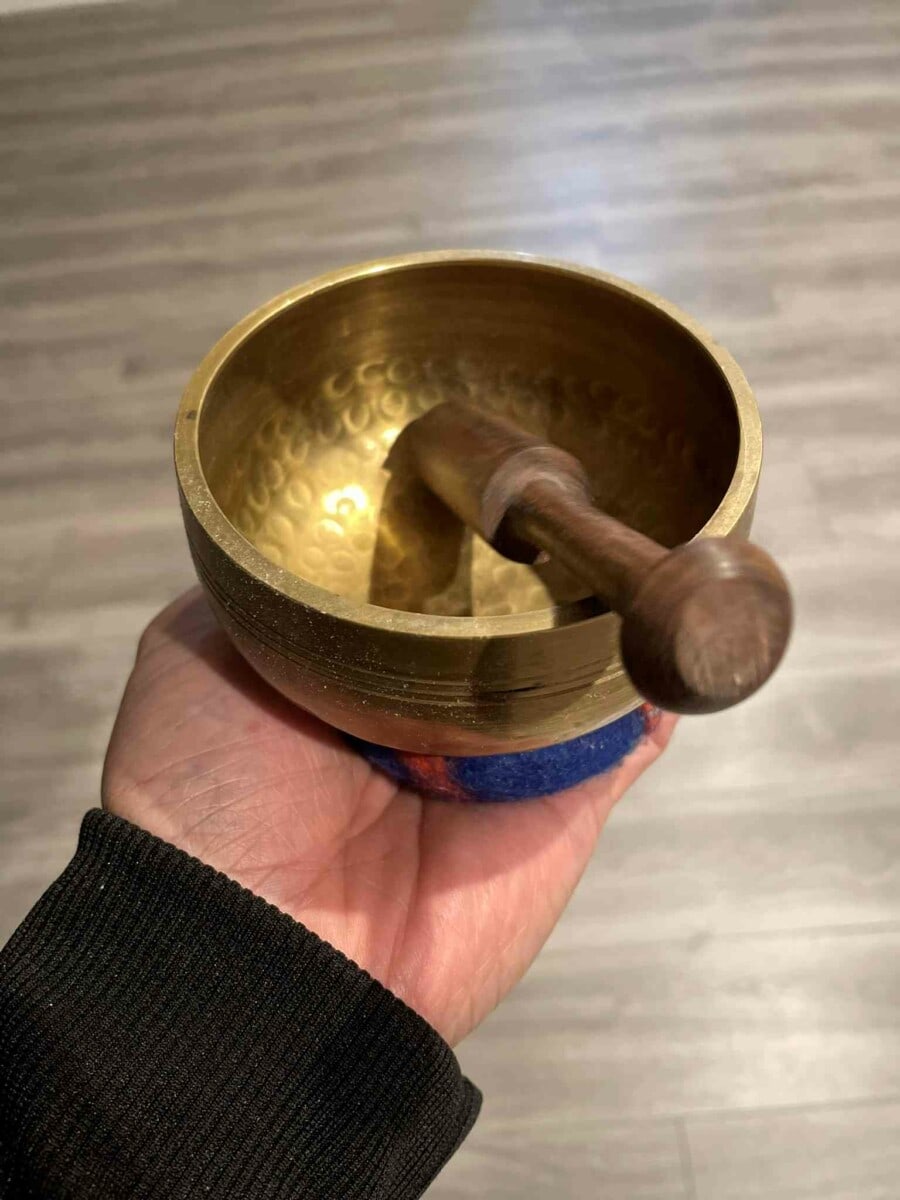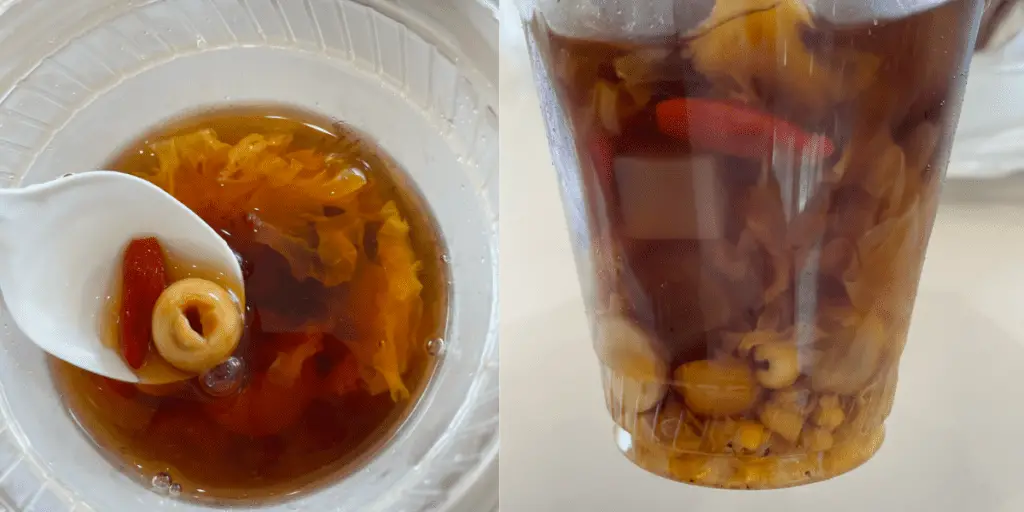Pink Indian plant has long been recognized for its health benefits, making it a popular choice for those seeking natural remedies and a healthier lifestyle. With various parts of the plant, including the flower, leaves, stem, and root, offering a range of advantages such as antioxidant properties and acne-fighting effects, it has been used for centuries in many Asian countries like Vietnam, and India as a healthier alternative.
If you’re looking to address specific health concerns or simply promote overall well-being, the pink Indian lotus plant may provide a natural solution. Keep reading to learn more about the 16 benefits this plant can offer.
Lotus Seeds Nutritional Content (per 100g)
| Nutrient | Value |
|---|---|
| Moisture | 9.10% |
| Protein | 13.32% |
| Fat | 2.82% |
| Fiber | 20.27% |
| Sodium (Na) | 11.83 mg/100g |
| Potassium (K) | 191.67 mg/100g |
| Calcium (Ca) | 127.82 mg/100g |
| Magnesium (Mg) | 10.86 mg/100g |
| Chromium (Cr) | 3.65 mg/100g |
| Nickel (Ni) | 11.02 mg/100g |
| Iron (Fe) | 16.29 mg/100g |
| Zinc (Zn) | 8.78 mg/100g |
| Vitamin C | 31.24% |
Arooj, M., Imran, S., Riaz Rajoka, M. S., Sameen, A., Siddique, R., Sahar, A., Tariq, S., Riaz, A., Hussain, A., Siddeeg, A., & Aadil, R. M. (2021). Lotus seeds (Nelumbinis seeds) as an emerging therapeutic seed: A comprehensive review. Food Science & Nutrition, 9(7), 3971-3987.
1. Protection From The Sun
The effects of the sun on your skin can cause premature aging, and the idea of hiding indoors to avoid exposure can make you feel like a prisoner. At the same time, the thought of the sun burning your flesh can be frightening. Fortunately, lotus extract offers a natural alternative for your lovely skin.
By reducing the production of reactive oxygen species and inhibiting the expression of enzymes involved in the degradation of collagen, lotus extract may help mitigate the damage caused by UV radiation-induced skin damage. As a result, it has become a popular ingredient in many skincare products designed to combat sun exposure.

2. Cancer-Fighting Ability
The lotus plant has shown promising results in fighting against cancer, particularly in animal studies. For those concerned about the risk of cancer, or those who have lost a loved one, consuming lotus may be a beneficial addition to their diet. Lotus soup can be a delicious and nutritious way to incorporate this plant into your diet.
I had lost my mother to colon cancer and she used to make the best lotus soup. Therefore, making a lotus soup for your loved ones may be a thoughtful way to show you care about their well-being.
3. Reduce Blood Glucose Levels
In a study on mice, lotus extract was found to reduce blood glucose levels. This effect may be due to the presence of bioactive compounds contained in the extract.
While more research is needed to fully understand the effects of lotus extract on blood glucose levels in humans, adding a few drops of lotus extract to your diet may be a healthy addition, especially in the context of the typical American diet, which is often loaded with sugar and carbohydrates. However, it’s important to remember that lotus extract should not be used as a substitute for a balanced and varied diet or proper medical care for blood sugar concerns.
4. Manage Diabetes
Diabetes is a medical condition characterized by high levels of sugar in a person’s blood, known as hyperglycemia. Managing blood glucose levels is a key aspect of diabetes management, as chronic high blood glucose levels can lead to complications such as heart disease, and kidney damage. Consistently high blood glucose levels can also damage blood vessels, leading to poor circulation.
However, by regulating blood glucose levels through lifestyle changes such as a healthy diet, regular exercise, and possibly adding lotus extract to their diet, people with diabetes can help prevent or delay the onset of a complication. Therefore, managing blood glucose levels is a critical component of diabetes.

5. Promote Deep Relaxation
It has been suggested that lotus extract may help promote relaxation. This is because some studies have shown that lotus extract can have a sedative-hypnotic effect.
One possible mechanism of action for this effect is that lotus extract can increase the levels of GABA in the brain. GABA is a neurotransmitter that acts as an inhibitory agent in the central nervous system and is known to promote relaxation.
If you are a fan of lotus tea, then drinking a cup after a long day of work can be a delightful and relaxing activity, especially while watching the sunset on your porch. During hot summer days, adding a few ice cubes to the tea can provide a refreshing way to cool off.
To further enhance the relaxation effect, a few drops of pink lotus extract can be added to your tea. If you’re interested in meditation then I suggest reading self-help books on meditation, it is a great way to understand more about meditation and master your meditation relaxation skills.

6. Reduce anxiety
Anxiety and relaxation are opposite states of being, and they are related in that one can help counteract the other. Anxiety is a state of heightened alertness and nervousness, often accompanied by feelings of tension.
In contrast, relaxation is a state of calmness, since we already know pink lotus extract has a sedative-hypnotic effect which leads to relaxation, it can also help to reduce anxiety. Anxiety might not seem like a big deal but if left untreated it can lead to a variety of physical health problems, including high blood pressure, heart disease, and even heart attack.
7. Improve Sleep
Lotus extract’s sedative-hypnotic effect makes it a natural option for improving sleep, and it has been traditionally used for its calming effect. Sedative-hypnotic medications are often prescribed for sleeping disorders, and pink Indian lotus extracts can inherently provide a similar effect.
Lotus extract’s ability to increase GABA levels in the brain may also contribute to its potential benefits for treating sleeping disorders. GABA is a neurotransmitter that helps promote relaxation, and higher levels of GABA in the brain may help promote a healthy sleeping pattern.
After a long day of work, winding down with a warm cup of lotus tea containing lotus extract and settling onto a comfortable memory foam mattress can be a refreshing way to have a good sleep.

8. Reduce Inflammation
Inflammation is a common symptom associated with various health conditions, such as trauma, and chemical exposure. One natural remedy for reducing inflammation is to combine lotus tea and honey. Pink Indian lotus tea has anti-inflammatory properties that can help to reduce inflammation, while honey has antibacterial properties and together, they both can make for an amazing-tasting tea.
Honey is a natural sweetener; it contains antioxidants and antibacterial compounds that can provide a range of health benefits. When adding honey to lotus tea, using all-natural honey can enhance the health benefits of the tea, such as reducing inflammation and promoting relaxation.
It is also important to note that honey is high in sugar, so individuals with diabetes or other conditions that require monitoring of sugar intake should take a moderate amount. To ensure that you are getting all-natural, high-quality honey, look for products that are labeled as raw and check the ingredient list to ensure that no additives or preservatives have been added to your honey.
9. Healthy Digestive Function
Lotus is a nutritious food that offers many benefits to the body. One of its key benefits is its high fiber content, which can promote the removal of toxins from the body. The fiber in the lotus can help to encourage large intestinal peristalsis, which can aid in digestion and help regular bowel movements.
Overall, lotus is a versatile and nutritious food that can be enjoyed in a variety of dishes, such as soups, stir-fries, and even desserts. Incorporating lotus into your diet, can support your digestive health, and promote nutrient absorption.
If you ever get the chance to try a delicious Vietnamese dessert called Che Sam Bo Luong, your taste buds are immediately greeted by a deliciously sweet and refreshing flavor. The soft and chewy lotus seeds, along with the succulent longan and crunchy barley, create a delightful texture that’s satisfying.
If you are concerned about the sugar content, you can always ask for it to be made without sugar or enjoy it in moderation. Another healthy alternative to sugar is monk fruit which has zero calories.

10. Weight Loss
For those struggling to shed those extra pounds, incorporating lotus into your diet could be helpful. With its high fiber content, the lotus can help regulate your digestion and promote the absorption of essential nutrients, making you feel satisfied for longer periods. This can lead to fewer cravings and a reduction in calorie intake, helping you reach your weight loss goals.
Additionally, lotus is a low-calorie food that can be used to replace high-calorie options food. For instance, you could swap out your usual snack for a handful of lotus seeds for a healthier, more filling alternative.

11. Lowering Blood Pressure
The lotus plant can lower blood pressure, making it a potential natural remedy for individuals struggling with hypertension. Including lotus in one’s diet may help manage blood pressure levels, and improve overall cardiovascular health.
12. Improve Cognitive Function
Lotus tea has been found to have potential benefits for improving cognitive function. The tea contains zinc, a mineral that works with vitamin B6 to improve neurotransmitter function in the brain.
This, in turn, can have a positive impact on cognitive processes such as memory, and concentration. Regular consumption of lotus tea may help improve cognitive function and reduce the risk of age-related cognitive decline. Researchers also suggested that antioxidant properties in the lotus extract can enhance acetylcholine levels in the brain and be a factor in improving cognitive function.
13. Cure Diarrhea
Traditionally the rhizomes of the lotus are used to cure diarrhea in Nigeria. If you are experiencing explosive diarrhea trying lotus stems may be worth considering. The compounds found in the lotus rhizomes, which include alkaloids, flavonoids, and tannins, have antimicrobial, anti-inflammatory, and antidiarrheal properties.
These properties may help reduce inflammation and eliminate harmful bacteria in the digestive tract, thereby helping diarrhea. A study conducted has demonstrated that the methanol rhizome extract of lotus possesses antidiarrheal properties, which supports its traditional use for this purpose by local communities.
14. Reduce Sebum
An emulsion formulation combining green tea and lotus extracts has been found to reduce sebum. This can be beneficial for people with acne or oily skin as sebum is a natural oil produced by the skin to keep it moisturized, but overproduction of sebum can lead to clogged pores and acne. People struggling with oily skin should give green tea and lotus extracts a try for a powerful one-two punch.

15. Good for Acne
The lotus is not only effective in reducing sebum and oil, but it also makes a great ingredient in cosmetics for individuals struggling with acne due to its safety and lack of side effects. It has been shown to have no toxicity and is safe for use on the human body.
Those who struggle with body acne may find lotus extract a useful addition to their skincare routine, such as in a body lotion, due to its being an acne-safe ingredient. With its safety profile and potential benefits, lotus is a promising ingredient for individuals seeking natural and effective solutions for managing acne-prone skin.
16. Good for Making Lotus Silk
Lotus silk weaving is an ancient practice that originated in Myanmar. It is a labor-intensive process that involves harvesting the lotus stems and extracting the fibers to create the expensive fabric.
Due to the rarity and difficulty of production, lotus silk is a valuable fabric that can fetch a high price. While the practice of making lotus silk was originally from Myanmar, it has since spread to Vietnam, and the craft of making lotus silk is still very unknown around the world.
Lotus silk weaving is a time-consuming process that can take skilled artisans months to produce just a small piece of fabric. This is because the harvesting and processing of the lotus stem, as well as the weaving of the fibers, requires attention to detail and a high degree of skill.
Furthermore, lotus is a seasonal plant, which means that the availability of raw materials is limited, making the fabric even more valuable. Despite these challenges, lotus silk remains a sought-after material due to its unique properties. The high level of craftsmanship required to produce lotus silk is considered an art form, and artisans who are skilled in this practice are highly respected.

Is Eating Lotus Good for You?
If you remain unconvinced of the benefits of lotus, trying it for yourself may be a great way to assess its potential impact on your health. Additionally, the lotus can be a delicious addition to meals when cooked correctly.
Why is Lotus a Holy Flower?
The lotus flower holds significant symbolism in Buddhism, often represented in statues and art depicting Buddha sitting on or holding the flower. This association with the flower further helps reinforce its spiritual and cultural significance in various parts of the world that celebrate Buddhism.
Conclusion
Lotus is a plant that offers numerous health benefits, making it a popular choice to add to your diet. The plant has a range of positive effects on the body, including improving digestion, reducing stress, and promoting better sleep. We hope this list was helpful if you are interested in incorporating lotus into your diet, or simply curious about its benefits.
In addition to its health benefits, lotus is also valued for its cultural significance in various regions of the world like Vietnam and India. If you are interested in learning more about natural alternatives for a healthy lifestyle, you may want to explore more of our website. Also, read the benefits of Himalayan Sea salt to find out what benefits it carries.
By AL Tran
Source:
- Huang CF, Chen YW, Yang CY, Lin HY, Way TD, Chiang W, Liu SH. Extract of lotus leaf ( Nelumbo nucifera ) and its active constituent catechin with insulin secretagogue activity. J Agric Food Chem. 2011 Feb 23;59(4):1087-94. doi: 10.1021/jf103382h. Epub 2011 Jan 14. PMID: 21235242.
- Yan MZ, Chang Q, Zhong Y, Xiao BX, Feng L, Cao FR, Pan RL, Zhang ZS, Liao YH, Liu XM. Lotus Leaf Alkaloid Extract Displays Sedative-Hypnotic and Anxiolytic Effects through GABAA Receptor. J Agric Food Chem. 2015 Oct 28;63(42):9277-85. doi: 10.1021/acs.jafc.5b04141. Epub 2015 Oct 16. PMID: 26448283.
- Ito S, Nagoshi N, Tsuji O, Shibata S, Shinozaki M, Kawabata S, Kojima K, Yasutake K, Hirokawa T, Matsumoto M, Takei K, Nakamura M, Okano H. LOTUS Inhibits Neuronal Apoptosis and Promotes Tract Regeneration in Contusive Spinal Cord Injury Model Mice. eNeuro. 2018 Dec 14;5(5):ENEURO.0303-18.2018. doi: 10.1523/ENEURO.0303-18.2018. PMID: 30560203; PMCID: PMC6294604.
- Bello FH, Maiha BB, Anuka JA. The effect of methanol rhizome extract of Nymphaea lotus Linn. (Nymphaeaceae) in animal models of diarrhoea. J Ethnopharmacol. 2016 Aug 22;190:13-21. doi: 10.1016/j.jep.2016.05.036. Epub 2016 May 20. PMID: 27215682.
- Mahmood, T., Akhtar, N., & Moldovan, C. A comparison of the effects of topical green tea and lotus on facial sebum control in healthy humans. Hippokratia, 17(1), 64-67. https://www.ncbi.nlm.nih.gov/pmc/articles/PMC3738281/
- Tong, Y., Li, Z., Wu, Y., Zhu, S., Lu, K., & He, Z. (2021). Lotus leaf extract inhibits ER− breast cancer cell migration and metastasis. Nutrition & Metabolism, 18. https://doi.org/10.1186/s12986-021-00549-0
- Arooj, M., Imran, S., Riaz Rajoka, M. S., Sameen, A., Siddique, R., Sahar, A., Tariq, S., Riaz, A., Hussain, A., Siddeeg, A., & Aadil, R. M. (2021). Lotus seeds (Nelumbinis seeds) as an emerging therapeutic seed: A comprehensive review. Food Science & Nutrition, 9(7), 3971-3987. https://doi.org/10.1002/fsn3.2313
- Kim, Y., & Moon, S. (2015). Photoprotective Effect of Lotus (Nelumbo nucifera Gaertn.) Seed Tea against UVB Irradiation. Preventive Nutrition and Food Science, 20(3), 162-168. https://doi.org/10.3746/pnf.2015.20.3.162





